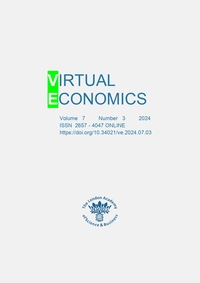Anti-money Laundering in the Digital Economy: Institutional, Financial, and Educational Channels
Anti-money Laundering in the Digital Economy: Institutional, Financial, and Educational Channels
Author(s): Anton Boyko, Andrew Zimbroff, Serhii Mynenko, Yang ChenSubject(s): Criminal Law, Financial Markets, ICT Information and Communications Technologies, Corruption - Transparency - Anti-Corruption
Published by: The London Academy of Science and Business
Keywords: anti-money laundering; institutional channel; investment channel; tax channel; educational channel; Saati hierarchy analysis method; forecast integral indicator;
Summary/Abstract: This paper aims to address the practical challenge of enhancing the effectiveness of anti-money laundering systems within the context of the digital economy. Specifically, it examines how institutional, financial, and educational channels can be optimised to combat illicit financial activities. This research responds to the growing need for a comprehensive antimoney laundering framework that can adapt to the evolving dynamics of the digital economy, where financial crimes are becoming increasingly sophisticated. A methodological framework is proposed to assess and forecast the effectiveness of these channels, employing the principal component method and Saaty hierarchy analysis. The study incorporates both linear and nonlinear regression models to provide medium-term forecasts for the channels' characteristics and their contribution to anti-money laundering effectiveness. An integral indicator is developed to quantify the impact of these channels in combating illicit financial activities. Historical data are utilised to project trends up to 2025, revealing the expected influence of institutional, financial (investment), and educational channels on the anti-money laundering system. The results indicate that, without targeted interventions, the effectiveness of institutional and financial channels gradually decreases, whereas the educational channel maintains a positive trajectory. This analysis underscores the importance of strengthening institutional frameworks and financial oversight to ensure the sustainability of anti-money laundering measures in the digital economy.
Journal: Virtual Economics
- Issue Year: 7/2024
- Issue No: 3
- Page Range: 59-80
- Page Count: 22
- Language: English

